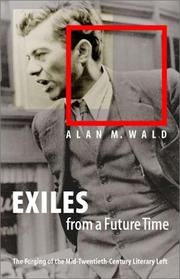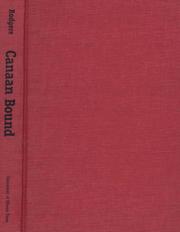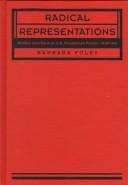| Listing 1 - 5 of 5 |
Sort by
|
Book
Year: 1968 Publisher: Philadelphia New York Lippincott
Abstract | Keywords | Export | Availability | Bookmark
 Loading...
Loading...Choose an application
- Reference Manager
- EndNote
- RefWorks (Direct export to RefWorks)
Himes, Chester --- Baldwin, James --- Baraka, Imamu Amiri --- Wright, Richard --- Attaway, William A., 1911-1986. Blood on the Forge --- Ellison, Ralph Waldo

ISBN: 0807853496 9780807853498 0807826839 Year: 2002 Publisher: Chapel Hill London University of North Carolina Press
Abstract | Keywords | Export | Availability | Bookmark
 Loading...
Loading...Choose an application
- Reference Manager
- EndNote
- RefWorks (Direct export to RefWorks)
Right and left (Political science) in literature --- American literature --- Communism and literature --- Socialism and literature --- Right and left (Political science) in literature. --- Littérature américaine --- Communisme et littérature --- Socialisme et littérature --- Droite et gauche (Science politique) dans la littérature --- History and criticism. --- History --- Histoire et critique --- Histoire --- Littérature américaine --- Communisme et littérature --- Socialisme et littérature --- Droite et gauche (Science politique) dans la littérature --- Literature and socialism --- Literature --- History and criticism --- 20th century --- United States --- Gold, Michael --- Rukeyser, Muriel --- Hayes, Alfred --- Hughes, Langston --- Le Sueur, Meridel --- Attaway, William A. --- Brinnin, John Malcolm --- Burnshaw, Stanley --- Freeman, Joseph --- Endore, Guy --- Lechlitner, Ruth N. --- Winwar, Frances --- Jerome, V.J. --- Funaroff, Sol --- Davidman, Joy --- Holmes, Eugene

ISBN: 0252023048 9780252023040 0252066057 9780252066054 Year: 1997 Publisher: Urbana ; Chicago University of Illinois Press
Abstract | Keywords | Export | Availability | Bookmark
 Loading...
Loading...Choose an application
- Reference Manager
- EndNote
- RefWorks (Direct export to RefWorks)
Drawing on a wide range of major literary voices, including Richard Wright, Ralph Ellison, and Toni Morrison, as well as lesser-known writers such as William Attaway (Blood on the Forge) and Dorothy West (The Living Is Easy), Rodgers conducts a kind of literary archaeology of the Great Migration. He mines the writers' biographical connections to migration and teases apart the ways in which individual novels relate to one another, to the historical situation of black America, and to African-American literature as a whole. In reading migration novels in relation to African-American literary texts such as slave narratives, folk tales, and urban fiction, Rodgers affirms the southern folk roots of African-American culture and argues for a need to stem the erosion of southern memory.
Fiction --- Thematology --- American literature --- American fiction --- Literature and society --- African Americans --- Rural-urban migration in literature --- Migration, Internal, in literature --- City and town life in literature --- African Americans in literature --- Narration (Rhetoric) --- Narrative (Rhetoric) --- Narrative writing --- Rhetoric --- Discourse analysis, Narrative --- Narratees (Rhetoric) --- Afro-Americans in literature --- Negroes in literature --- African American authors&delete& --- History and criticism --- History --- Intellectual life --- Southern States --- In literature. --- African American authors --- Migration [Internal ] in literature --- United States --- 20th century --- Southern States in literature --- Attaway, William A. --- Criticism and interpretation --- Johnson, James Weldon --- Bland, Alden --- Wright, Richard --- Thurman, Wallace --- Toomer, Jean --- Kelley, William Melvin --- Du Bois, William Edward Burghardt --- Ellison, Ralph Waldo --- White, Walter Francis --- McKay, Claude --- Hurston, Zora Neale --- Morrison, Toni --- West, Dorothy --- Slavery in literature --- Slaves' writings [American ]
Book
ISBN: 9780252036392 9780252093425 0252093429 1283582864 9781283582865 0252036395 9786613895318 6613895318 0252079310 Year: 2012 Publisher: Urbana Chicago Springfield University of Illinois Press
Abstract | Keywords | Export | Availability | Bookmark
 Loading...
Loading...Choose an application
- Reference Manager
- EndNote
- RefWorks (Direct export to RefWorks)
"This volume explores the contours and content of the Black Chicago Renaissance. A movement crafted in the crucible of rigid racial segregation in Chicago's "Black Belt" from the 1930's through the 1960's, its participants were also heavily influenced by--and influenced --the Harlem Renaissance and the Chicago Renaissance of white writers. Despite harsh segregation, black and white thinkers influenced one another particularly through their engagements with leftist organizations. In many ways, politically, racially, spatially, this was a movement invested in cross-pollination, change, and political activism, as much as literature, art, and aesthetics as it prepared the way for the literature of the Black Arts Movement and beyond. The volume begins with a look at Richard Wright, indisputably a central figure in the Black Chicago Renaissance with the publication of "Blueprint for Negro Writing." Wright sought to distance himself from what he considered to be the failures of the Harlem Renaissance, even as he built upon its aesthetic and cultural legacy. Subsequent chapters discuss Robert Abbott, William Attaway, Claude Barnett, Henry Blakely, Aldon Bland, Edward Bland, Arna Bontemps, Gwendolyn Brooks, Frank London Brown, Alice Browning, Dan Burley, Margaret Danner, Frank Marshall Davis, Katherine Dunham, Richard Durham, Lorraine Hansberry, Fenton Johnson, John Johnson, Marian Minus, Williard Motley, Marita Bonner, Gordon Parks, John Sengstacke, Margaret Walker, Theodore Ward, Frank Yerby, Black newspapers, the Chicago School of Sociologists, the Federal Theater Project, Black Music, and John Reed Clubs"--
American literature --- Illinois (Etat) --- Chicago (Ill.) --- History and criticism --- 20th century --- African American authors --- Intellectual life --- Abbott, Robert S. --- Attaway, William A. --- Barnett, Claude A. --- Blakely, Henry Lowington --- Bland, Alden --- Bland, Edward --- Bonner, Marita --- Brooks, Gwendolyn --- Brown, Frank London --- Browning, Alice C. --- Burley, Dan --- Danner, Margaret Esse --- Davis, Frank Marshall --- Durham, Richard --- Johnson, Fenton --- Johnson, John H. --- Minus, Mattie Marian --- Motley, Willard Francis --- Parks, Gordon --- Sengstacke, John --- Walker, Margaret Abigail --- Ward, Theodore --- Wright, Richard --- Yerby, Frank --- English literature --- Agrarians (Group of writers) --- History and criticism. --- Chikago (Ill.) --- Chikaho (Ill.) --- City of Chicago (Ill.) --- Shiḳago (Ill.) --- Čikago (Ill.) --- شيكاغو (Ill.) --- Shīkāghū (Ill.) --- Çikaqo (Ill.) --- Чыкага (Ill.) --- Chykaha (Ill.) --- Чикаго (Ill.) --- Shikááʼgóó (Ill.) --- Σικάγο (Ill.) --- Sikago (Ill.) --- Kikako (Ill.) --- שיקגו (Ill.) --- Sicagum (Ill.) --- Chicagia (Ill.) --- Chiagum (Ill.) --- Čikāga (Ill.) --- シカゴ (Ill.) --- شکاگو (Ill.) --- Shikāgū (Ill.) --- Kyekago (Ill.) --- Tchicago (Ill.) --- שיקאגא (Ill.) --- Čėkaga (Ill.) --- 芝加哥 (Ill.) --- Zhijiage (Ill.)

ISBN: 0822313944 9780822313946 0822397757 0822313618 1322067481 Year: 1993 Publisher: Durham London Duke University Press
Abstract | Keywords | Export | Availability | Bookmark
 Loading...
Loading...Choose an application
- Reference Manager
- EndNote
- RefWorks (Direct export to RefWorks)
In this revisionary study, Barbara Foley challenges prevalent myths about left-wing culture in the Depression-era U.S. Focusing on a broad range of proletarian novels and little-known archival material, the author recaptures an important literature and rewrites a segment of American cultural history long obscured and distorted by the anti-Communist bias of contemporaries and critics.Josephine Herbst, William Attaway, Jack Conroy, Thomas Bell and Tillie Olsen, are among the radical writers whose work Foley reexamines. Her fresh approach to the U.S. radicals' debates over experimentalism, the relation of art to propaganda, and the nature of proletarian literature recasts the relation of writers to the organized left. Her grasp of the left's positions on the "Negro question" and the "woman question" enables a nuanced analysis of the relation of class to race and gender in the proletarian novel. Moreover, examining the articulation of political doctrine in different novelistic modes, Foley develops a model for discussing the interplay between politics and literary conventions and genres.Radical Representations recovers a literature of theoretical and artistic value meriting renewed attention form those interested in American literature, American studies, the U. S. left, and cultural studies generally.
American fiction --- 20th century --- History and criticism --- Politics and literature --- United States --- History --- Working class writings [American ] --- Political fiction [American ] --- Social problems in literature --- Attaway, William A., 1911-1986. Blood on the Forge --- Cantwell, Robert Emmett --- Criticism and interpretation --- Conroy, Jack --- Dos Passos, John --- Gold, Michael --- Hicks, Granville --- Olsen, Tillie --- Rahv, Philip --- Freeman, Joseph --- Zugsmith, Leane --- Bell, Thomas --- Smedley, Agnes --- Rollins, William --- Page, Myra --- Weatherwax, Clara --- Political fiction, American --- Proletariat in literature --- Radicalism in literature --- Working class in literature --- Working class writings, American --- Working class --- Commons (Social order) --- Labor and laboring classes --- Laboring class --- Labouring class --- Working classes --- Social classes --- Labor --- Labor and laboring classes in literature --- Intellectual life --- Employment --- Working class in literature. --- Social problems in literature. --- Proletariat in literature. --- Radicalism in literature. --- History and criticism. --- Intellectual life.
| Listing 1 - 5 of 5 |
Sort by
|

 Search
Search Feedback
Feedback About UniCat
About UniCat  Help
Help News
News